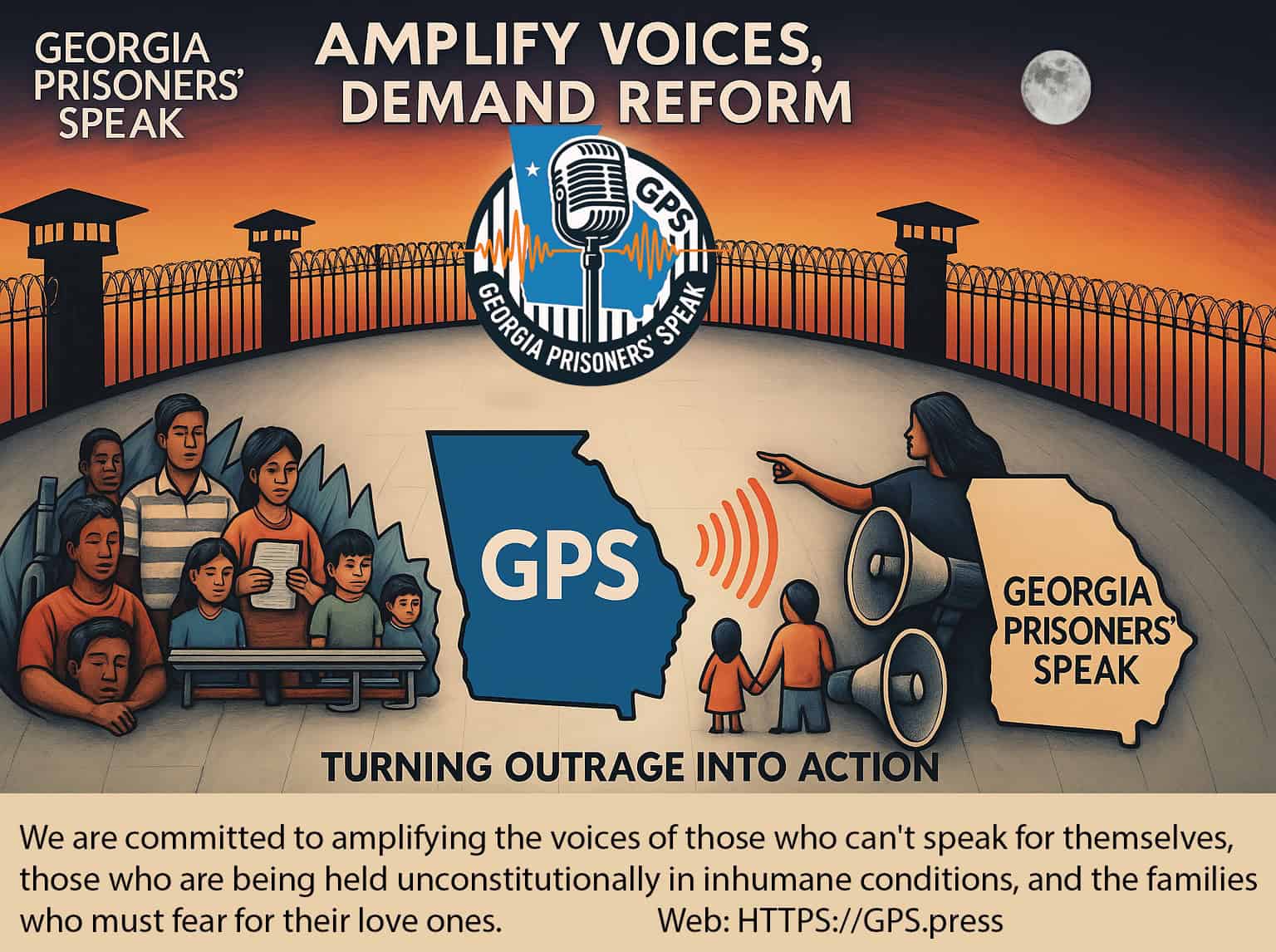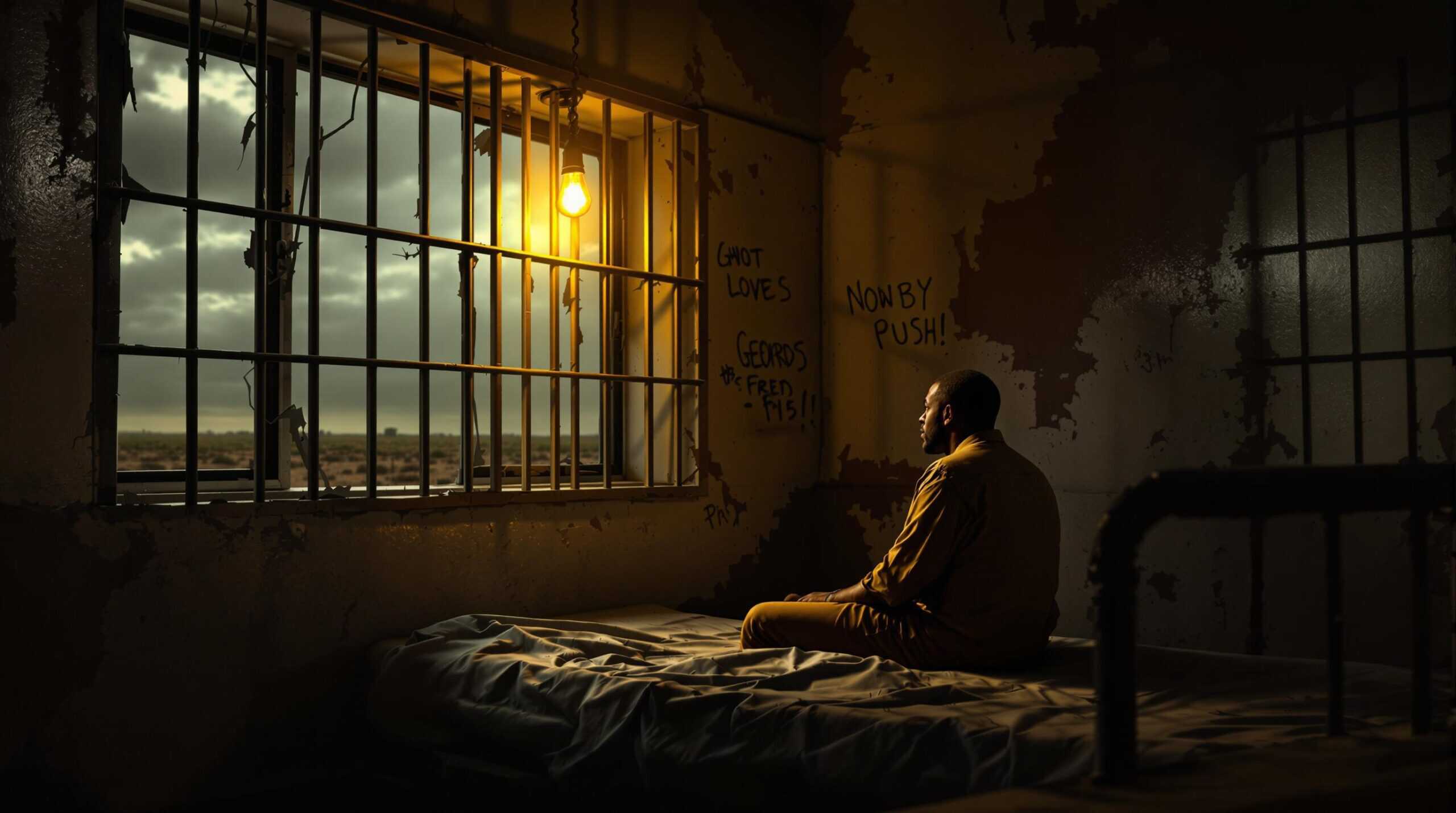A 19-inch knife. Three severed fingers. No officer in sight. This happened at Wilcox State Prison—one incident among thousands in a system the Department of Justice found unconstitutional. Georgia’s prisons don’t just incarcerate people. They abandon them to violence, medical neglect, and conditions no constitutional democracy should tolerate. 1
The Violence Inside
GPS has documented 1,682 deaths in Georgia custody since 2020. 2 Behind each number:
- 100+ homicides in 2024 alone—32 times the free population rate
- Stabbings with weapons that shouldn’t exist inside secured facilities
- Beatings by inmates the state knows are dangerous
- Deaths in facilities where officers don’t see—or don’t respond
Staff vacancy rates exceed 49% at some facilities. Gangs fill the supervision vacuum. Violence becomes governance.
Medical Neglect That Kills
Georgia has paid over $3 million settling medical negligence lawsuits. That’s just the cases that reached settlement—families who had lawyers, evidence, and time. Most deaths go uncompensated.
The pattern GPS documents:
- Sick call requests ignored for days or weeks
- Chronic conditions diagnosed too late to treat
- Emergency symptoms dismissed as malingering
- People dying of treatable illnesses because intervention came too late
The average age at death in Georgia prisons is 52.1 years—decades younger than Georgia’s life expectancy. 3
The Wrongly Convicted
Since 1989, Georgia has exonerated 47 people who collectively lost 538 years to wrongful imprisonment. That’s 538 years of:
- Enduring conditions the DOJ found unconstitutional
- Risking violence from people who did commit crimes
- Missing births, deaths, weddings, and lives outside
- Surviving a system designed to break people
The Georgia Innocence Project continues working to identify more wrongful convictions. How many are still inside?
Why This Keeps Happening
The factors GPS has documented:
- Staffing crisis: Vacancy rates exceeding 60% at 18 facilities as of late 2023
- Budget misallocation: $700 million added to corrections while outcomes worsened
- Contractor immunity: Healthcare providers profit whether people live or die
- Political indifference: No electoral consequence for prison deaths
The system isn’t broken. It’s working exactly as designed—just not for the people inside.
What GPS Documents
Georgia Prisoners’ Speak maintains:
- Mortality Database: 1,682 deaths since 2020, tracked by facility, cause, and demographics
- Facilities Database: Information on all 117 Georgia institutions
- Statistics Dashboard: Real-time data on population, deaths, and conditions
We accept confidential reports from incarcerated people, families, and staff. Your information becomes evidence.
Take Action
Use Impact Justice AI to send advocacy emails demanding accountability. The free tool crafts personalized messages to Georgia lawmakers, parole board members, and oversight agencies—no experience required.
Report what you know. The state won’t document its failures. We will.
Further Reading
- $700 Million More—And Nothing to Show for It
- Cruel and Unusual Dentistry: Inside Georgia’s Prison Dental Crisis
- Forced Criminality: Inside Georgia’s Prison Violence Factory
- GPS Mortality Database
About Georgia Prisoners’ Speak (GPS)
Georgia Prisoners’ Speak (GPS) is a nonprofit investigative newsroom built in partnership with incarcerated reporters, families, advocates, and data analysts. Operating independently from the Georgia Department of Corrections, GPS documents the truth the state refuses to acknowledge: extreme violence, fatal medical neglect, gang-controlled dorms, collapsed staffing, fraudulent reporting practices, and unconstitutional conditions across Georgia’s prisons.
Through confidential reporting channels, secure communication, evidence verification, public-records requests, legislative research, and professional investigative standards, GPS provides the transparency the system lacks. Our mission is to expose abuses, protect incarcerated people, support families, and push Georgia toward meaningful reform based on human rights, evidence, and public accountability.
Every article is part of a larger fight — to end the silence, reveal the truth, and demand justice.

